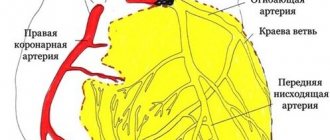Aspirin, or acetylsalicylic acid, is a medicinal substance belonging to the group of so-called non-steroidal anti-inflammatory drugs.
It includes drugs familiar to many, such as ibuprofen (Nurofen, Faspik, Advil), nimesulide (Nimesil, Nise), meloxicam (Movalis, Artrosan) and some others, but only aspirin has a unique effect on platelets.
Aspirin does not thin the blood.
In fact, it is a myth that aspirin thins the blood. How “thin” a person’s blood is depends on the content of hemoglobin and red blood cells in it (a person with anemia has more “watery” blood), as well as on the amount of fluid consumed. Aspirin reduces the ability of blood to clot, that is, to form blood clots, and does not affect its “thickness.”
Pharmacodynamics and pharmacokinetics
The main component of the medicine is acetylsalicylic acid (some mistakenly call it acetylic acid). The pharmaceutical drug belongs to anti-inflammatory medications.
It is useful to know that Aspirin and acetylsalicylic acid are the same thing.
C9H8O4 is the chemical formula of Aspirin.
Taking Aspirin in a dosage of 300 mg to 1 mg helps eliminate joint and muscle pain. In addition, a similar dose of the drug helps to improve well-being during colds and flu, and helps with fever.
Acetylsalicylic acid is suitable for the treatment of acute and chronic inflammatory diseases.
It is advisable to take aspirin for:
- Bekhterov's diseases
- Osteoarthritis
- rheumatoid arthritis
For the above diseases, doctors prescribe higher doses of the drug than when fighting colds and high body temperature. Based on the specific course of the disease, patients are prescribed 4-8 g of medication per day.
Aspirin is also useful to take in the presence of many vascular diseases. In such cases, doctors recommend taking from 75 g to 300 mg of the substance daily (depending on the nature and danger of the disease).
Pharmacokinetics
After consuming the medicine, the active substance is rapidly and completely absorbed from the stomach. During and after absorption, it is converted to salicylic acid (the main active metabolite).
Decomposition products are primarily excreted through the kidneys.
What is the danger of thick blood
Normally, in a person’s blood, all the formed elements (leukocytes, platelets, erythrocytes and others) are in a certain quantitative ratio. Platelets are very important cells, without which any scratch on the human body could lead to severe bleeding. It is platelets that are responsible for the process of blood clotting and wound healing.
If the concentration of these cells increases, it is customary to speak of “thick blood.” Many people know that this condition can cause negative consequences for the entire body. At the same time, the person feels a loss of strength, apathy, and becomes irritable. Due to blood thickening, its flow through the veins and arteries slows down, therefore, the internal organs do not receive enough oxygen and essential microelements.
Increased blood viscosity poses a serious health risk
But perhaps the biggest danger of thick blood is the formation of blood clots. Due to the accumulation of platelets, clots form, which pose a threat of blockage of blood vessels, which often leads to heart attacks and strokes, especially in old age.
To prevent such dangerous conditions, doctors recommend their patients to use Aspirin to thin the blood. The medicine helps prevent blood clots from forming and entering the bloodstream. This significantly reduces the risk of developing myocardial infarction and cerebral stroke.
Indications for use of Aspirin
Acetylsalicylic acid is a symptomatic drug that should be taken for:
- pain
- inflammation
- feverish
Indications for use:
- toothache
- headache
- muscle and joint pain
- algomenorrhea
- sore throat due to a cold
- back pain
- cold
- ARVI
- Pain of moderate severity arising from inflammation of the joints
Effect of the drug
The use of Aspirin for blood thinning is possible due to its pharmacological properties. According to its group, the medication belongs to non-steroidal anti-inflammatory drugs. It has a moderate analgesic and antipyretic effect. This occurs by slowing down the synthesis of specific prostaglandin enzymes.
Aspirin has proven itself well for reducing body temperature during various colds, for eliminating muscle pain during the inflammatory process or due to severe fatigue.
Important! Blood thinning when consuming acetylsalicylic acid occurs due to its ability to slow down the process of platelet adhesion by blocking the production of thromboxane A in blood platelets.
Contraindications for Aspirin
Prohibitions on taking Aspirin are divided into two types:
- Relative
- Absolute
Taking Aspirin is strictly prohibited if you are allergic to acetylsalicylic acid or other non-steroidal anti-inflammatory drugs. In addition to all this, the drug should not be used if there is an increased tendency to bleeding.
Relative contraindications:
- Bronchial asthma
- Combined use of anticoagulants
- Breast-feeding
- Pregnancy
- Chronic stomach diseases
- Kidney dysfunction
- Diabetes
- Age up to 12 years
If there are relative prohibitions, taking the medicine is possible only after approval by the doctor.
Features of use to reduce blood viscosity
Taking Aspirin to thin the blood should be carried out in a strict dosage prescribed by a doctor on an individual basis. In this case, the specialist must take into account the patient’s test results, the presence of concomitant diseases, the patient’s complaints and some other features.
The medicine should be taken in a strict dosage
Typically, treatment is carried out according to the following scheme: from 50 to 100 mg of medication per day for two weeks. The tablet should be taken orally with plain water. The amount of liquid should be sufficient, at least 200 ml. Take tablets only after meals.
Side effects
Sometimes taking Aspirin can cause negative effects, these include:
- Pain in the stomach
- Decreased platelets in the blood
- Bronchospasm
- Various skin rashes
Taking Aspirin for a long time sometimes leads to the development of bleeding in the gastrointestinal tract. Signs characterizing this pathology:
- Anemia
- Tarry stool
- Weakness, excruciating abdominal pain
If the above symptoms appear, you should stop taking Aspirin and seek medical help.
Can this product be used as a prophylactic?
Many people are mistaken in thinking that Aspirin is safe and can be used as a prophylactic blood thinner. Indeed, acetylsalicylic acid has many beneficial properties for the body. As already mentioned, the medication reduces the formation of prostaglandins, thereby suppressing the inflammatory process and reducing temperature. Despite the fact that Aspirin has a positive effect and thins the blood, it cannot be used for prophylaxis, since the drug can provoke a lot of undesirable consequences.
Important! You can take the medicine only if increased blood viscosity is confirmed in the laboratory. Using the product for prophylactic purposes is strictly prohibited.
Overdose
Signs of a moderate overdose include:
- Hearing impairment
- Headache
- Confusion
- Dizziness
- Noise in ears
If you reduce the dose of the drug, these symptoms will disappear.
In case of severe overdose, the following occurs:
- Ketosis
- Fever
- Respiratory failure
- Severe hypoglycemia
- Cardiogenic shock
With such symptoms, the patient is hospitalized in a hospital.
Possible harm of acetylsalicylic acid
If you use Aspirin not as prescribed by a doctor, there is a serious risk of developing irreversible negative consequences for the body. The side effects of the drug include a decrease in the ability of blood to clot and an increase in vascular permeability.
Taking the drug also has a negative effect on the digestive organs, in particular the stomach. For this reason, some doctors recommend taking the tablets with milk or mineral water. To reduce the negative effect of the drug on the gastric mucosa, you need to chew the tablet or first crush it. Today, the drug is often produced in effervescent form, which significantly reduces its harmful effects on the gastrointestinal tract.
How medications help with vein thrombosis
All drugs prescribed for the prevention and treatment of venous thrombosis have a blood-thinning effect, since one of the main causes of the disease is increased blood clotting. They cannot miraculously dissolve existing blood clots, but they do prevent them from enlarging and forming new clots. Medicines to reduce clotting may have different principles of action, but give approximately the same effect. They are taken in courses or on an ongoing basis at the discretion of the attending physician.
Blood thinning medications are selected based on tests, diagnosis, and patient characteristics. Self-medication in this case is unacceptable, as it can lead to serious consequences. One of the main side effects is the risk of bleeding. More often it is minor and manifests itself in the form of bruises and nosebleeds. But an incorrectly selected drug and its dosage can lead to more serious consequences requiring hospitalization.
Risk factors for thrombosis
Thrombosis occurs not only in older people, but also in young people. The reason for this is a number of factors that do not themselves lead to the formation of blood clots, but create all the conditions for this. The likelihood of forming blood clots increases in the following cases:
- overweight;
- passive lifestyle;
- forced bed rest for more than three days;
- varicose veins;
- recent myocardial infarction or stroke;
- use of oral contraceptives;
- fractures and injuries of the lower extremities;
- unhealthy diet, unhealthy lifestyle.
How does aspirin work?
It blocks the action of the enzyme cyclooxygenase in the body, thus reducing the synthesis of special substances - prostaglandins.
Prostaglandins are involved in the processes of inflammation, in the regulation of vascular tone, muscle contractions, protect the wall of the stomach and intestines from chemical damage and promote the formation of blood clots when the walls of blood vessels are damaged.
Platelets are pieces of cells that constantly float through the bloodstream. In some situations, they can “activate” and stick together, forming a blood clot. As a rule, this occurs when a vessel is damaged - an injury or a cut, and helps the body avoid large blood losses.
Cardiovascular diseases are currently the leading cause of death in the world and in Russia, and first of all we are talking about coronary heart disease and myocardial infarction, as well as ischemic stroke.
Cardiovascular diseases are currently the leading cause of death in the world.
Most heart attacks and strokes occur when blood flow to an area of the heart or brain is blocked by a blood clot.
And it all begins gradually, with the development of atherosclerotic vascular disease. This is the name of the process in which a gradual accumulation of cholesterol, cellular breakdown products and calcium occurs in the inner layer of the vascular wall - an atherosclerotic plaque is formed. Atherosclerosis usually affects large and medium-sized arteries, and the plaques themselves often grow to such a size that they begin to significantly impede blood flow.
But the real problems begin when the plaque becomes brittle and ruptures. The body reacts to a ruptured plaque in the same way as to a ruptured vessel, saving itself from major blood loss - it tries to “patch” the damage by covering the area with a blood clot, and platelets are the first to arrive at the site of damage. A ruptured plaque “misleads the platelets” and becomes the site of the formation of a blood clot, partially or completely blocking the blood flow.
If a blood clot blocks a vessel supplying blood to the heart, myocardial infarction develops; if it supplies blood to the brain, an ischemic stroke occurs.
In recent decades aspirin has firmly entered our lives as a drug that helps maintain heart health, and has practically become a “vitamin for the myocardium.” Anyone can go to the pharmacy and buy aspirin without a prescription.
Daily use of low-dose aspirin (usually 50-100 mg per day) has been considered an effective way to reduce the risk of myocardial infarction, ischemic (that is, associated with decreased cerebral blood flow) stroke, and other problems associated with impaired vascular blood flow.
However, in 2017-2019, several large medical studies were conducted that changed the point of view of doctors on this drug.
The data obtained concerned patients who did not have coronary heart and vascular disease, heart attacks or strokes in the past, but who took the drug to prevent them in the future.
The first found no benefit from aspirin in patients at low risk of developing cardiovascular disease.
The second unexpectedly showed an increase in overall mortality in older people without cardiac disease who took aspirin as prophylaxis.
The third found a high risk of bleeding that outweighed the benefit of aspirin in most patients at moderate risk of developing cardiovascular disease, and identified a group of people who benefit from prophylactic aspirin.
Finally, to find out how many people take preventative aspirin, a survey was conducted in the United States of more than 14,000 men and women over 40 years of age. It turned out that about a quarter of healthy people take aspirin for preventive purposes, and a quarter of these people decided to take aspirin treatment on their own, without consulting a doctor. Moreover, half of respondents aged 70 years and older, and without cardiovascular disease, took aspirin daily.
A quarter of healthy people take aspirin for preventive purposes.
Unfortunately, taking any medicine, regardless of its study and breadth of use, is simultaneously associated with both health benefits and the risk of complications.
Aspirin, while reducing the formation of blood clots in the body, has serious side effects, which are the “other side of the coin” - gastrointestinal bleeding, as well as severe intracerebral, intraocular and intraarticular hemorrhages.
There must be very good reasons for recommendations for its preventive use!
So, when should a cardiologist recommend that a patient take low-dose aspirin every day?
- Firstly, this is necessary for those patients who have already experienced one or more strokes or myocardial infarction. The risk of developing a recurrence in such people is almost 8 times higher compared to those who have never been sick. This kind of prevention is called secondary (we try to prevent the second and subsequent cardiovascular accidents)
- Prophylactic treatment is also necessary for those who have not had a heart attack, but who previously had a stent installed in the coronary artery, or for those who have undergone coronary artery bypass surgery. The doctor will also prescribe aspirin to someone who has been diagnosed with angina pectoris - pain in the chest during physical (less often emotional) stress associated with atherosclerotic narrowing in the coronary vessels
- Aspirin is infrequently prescribed to patients with atrial fibrillation, heart valve disease or prosthetic valves - usually when more effective drugs cannot be prescribed
- Aspirin is used to treat atherosclerotic changes in the arteries of the legs - with these problems, patients experience severe pain in the calf muscles when walking, this is called “intermittent claudication”
- And finally, the most difficult situation is prescribing aspirin to a patient who does not yet have any cardiovascular diseases in order to prevent their occurrence. The so-called “primary prevention” of the disease
Please remember that for people over 70 years of age who do not have cardiovascular disease, taking preventive aspirin is generally not recommended, it will not provide any benefit, and the risk of severe bleeding is very high.
For people over 70 years of age who do not have cardiovascular disease, preventive aspirin is generally not recommended.
Aspirin prophylaxis currently recommended for people 50–69 years of age with a low risk of bleeding and a greater than 10% risk of heart attack or stroke over the next 10 years of life. Risk factors include male gender, diabetes, frequent high blood pressure, smoking and high cholesterol levels in blood tests.
Patient reviews
Aspirin has been used for over two hundred years. During this time, the product has won a lot of positive reviews.
Evgenia, Tula “I took Aspirin for cardio last year after suffering a heart attack. Fortunately, my condition was moderate, as I was able to go to the hospital in a timely manner. To prevent another attack, the doctor prescribed these pills to me. I took Aspirin for two weeks. “Now I feel good, there are no side effects.”
Oleg, Voronezh “Not so long ago I began to notice that when the skin is damaged, the blood quickly bakes and almost does not flow out. This symptom alerted me, since I am already at an advanced age, and I also suffer from hypertension. After taking the test, it turned out that my blood was indeed thick. The doctor prescribed treatment with Aspirin, taking half a tablet a day for two weeks. Now I’m waiting for the results of the re-analysis, I hope that everything has worked out.”
Margarita, Moscow “I bought aspirin for my mother after heart surgery. She was prescribed this medication to prevent the formation of blood clots and reduce the risk of another heart attack. After two courses of treatment, my mother’s condition returned to normal, and now her tests are normal. Aspirin is an affordable but very good remedy.”








